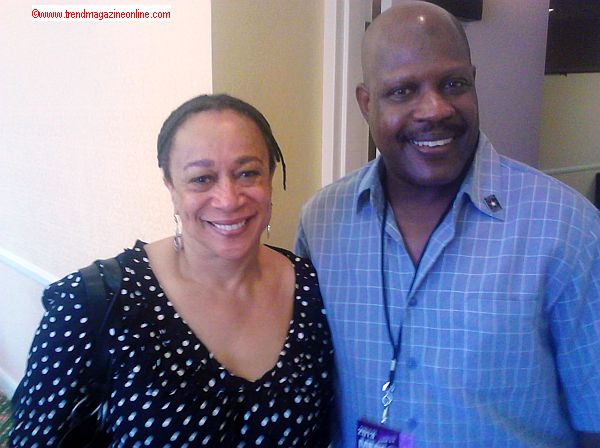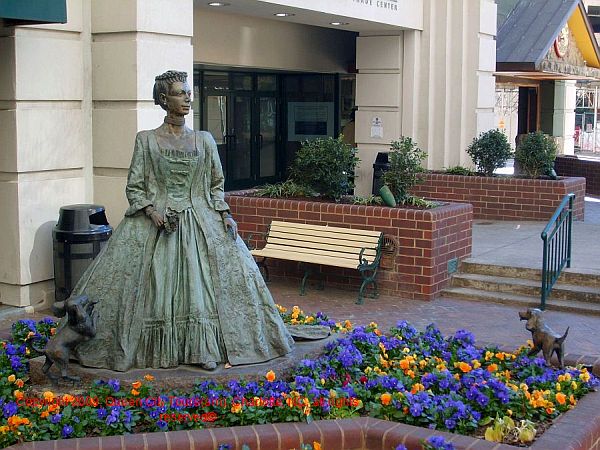I must admit that the reality of this one-on-one interview was just as much as a pipe dream as my past interview with Mr. Glynn Turman at the 2011 National Black Theatre Festival in Winston-Salem, NC. In fact, it took the same nerves as I had to overcome to ask Ms. Lisa Cooper − my first and only true love − if we could sit together on the motor coach to Disney World (Orlando, FL) from Miami Beach High School, to play in their signature daily parade back in the late 1970 ′s. Fortunately, they both said yes, just like Lisa. This go round I actually prepared to interview two other stars in attendance just in case my first choice did not come through for whatever reason. As they say, it is good to have a Plan B, and sometimes C, and D. Plan A, although confirmed, still presented the challenge of getting over the ″What the heck did I just do, ″ fear and rising to the next level of ″I am supposed to be here. ″ As we walked up to the second floor for our interview I kept saying to me ″man I wish that there was some way to peek at my notes again before we get started. ″ I could have stalled for time by pretending to have to go to the bathroom but I ruled that out because of the likelihood that my interview would be postponed to never again. Needless to say, I decided to approach this situation as I had done many times during my 23-year stint in the U.S. Army/Army Reserves; I sucked it up and continued the mission.
I decided to just be honest about my genuine love of her work on Law and Order, and Lackawanna Blues, and let the rest to just flow freely. We were actually moved from our first interview location to another room which actually gave me more time to shake off the old nerves. One must admit that although her role as the tough as nails character -- Lt. Van Buren -- on Law and Order is just good acting; it is still a bit intimidating − at first --when she is sitting within arm ′s reach of you, staring you in the face. In the back of my head I was thinking she was going to say something like ″Get to the point, boy! ″ Well, actually, she was more like her Lackawanna character in terms of being very polite, understanding, patient, and accommodating throughout the entire interview. In fact, she came across as anyone ′s favorite aunt that will bend over backwards to help someone. At least that is the vibe that I received. I can actually tell when a person feels comfortable around me; just like a dog can sense comfort or fear in a person. There was this really awkward scene at the end of our interview where I wanted to get a picture of us but was not sure of how to do it without the assistance of a third person. She tried her best to help me but my camera phone did not have the two-way lens/screen which left us both sort of fumbling with it until help arrived. The interview, however, went a lot smoother as she was more than eager to answer all of my questions…
Q (Jay): Was the transition from theatre to the small and big screen difficult or more of a natural flow?
A (Merkerson): I think it was a natural flow; I did start in the theatre. I have a Bachelor of Fine Arts in theatre from Morgan State University (Baltimore, MD) so it was a natural sort of flow, you know, you work to let people see the kind of work that you do, to let them know that you are dependable and that you come through with the goods. And, you continue to work in a way that will have you growing in each piece that you do and you are learning something new. If you stay long enough, there is sort of a natural flow. People then get to know you and you start doing a little television and film.
Q (Jay): Was that transition from stage to the little and big screen a bit daunting at first?
A (Merkerson): No, not really. They all three have certain focuses; you use certain muscles for them. I think probably the only adjustment actors have to make is that they have to be much smaller for television or film as opposed to the stage where you need all of your power. The camera tends to pick up everything that you need, so you have to find a way to sort of hone in on all of that energy that you use on stage. You don ′t need all of that [energy] for TV or film. That ′s probably the biggest adjustment most stage actors have to make.
Q (Jay): On TV you get to do it over several times.
A (Merkerson): Absolutely, but you get to do that on the stage as well; except you have to wait til the next day. [Laughs!]







